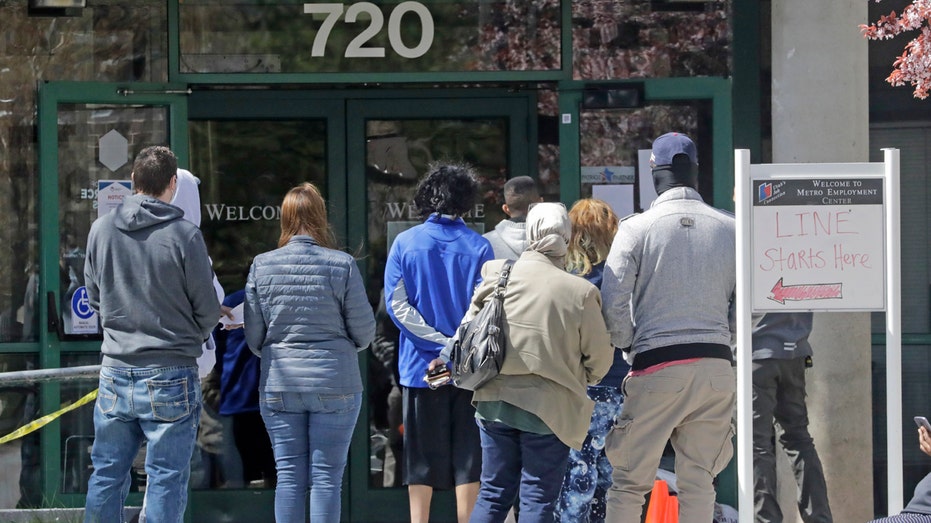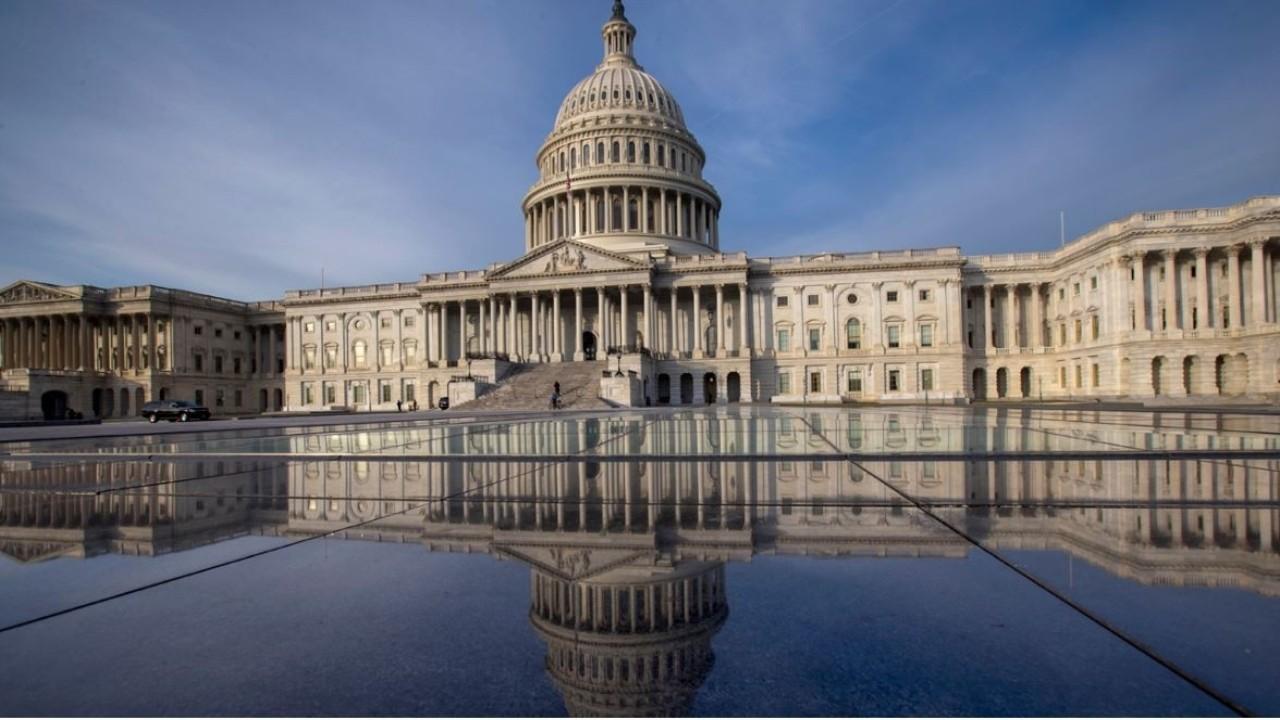GOP proposal for $200 unemployment aid would mean benefit cut for 30M workers
The sweetened jobless aid expired for out-of-work Americans over the weekend
Senate Republicans unveiled a $1 trillion coronavirus stimulus proposal on Monday that included, among other measures, cutting the extra weekly unemployment from $600 to $200 — meaning that 30 million Americans could see a significant reduction in jobless aid.
The federal program that provides a $600-per-week increase to unemployment benefits expired for out-of-work Americans over the weekend, although it does not officially end until July 31.
MCCONNELL UNVEILS GOP'S $1T CORONAVIRUS STIMULUS FRAMEWORK
Republicans and the White House proposed reducing the $600 payment to $200 until states can adopt a new approach that would cap the aid at 70 percent of the income workers received before they lost their jobs. It's unclear how long it would take states to phase in the new system; some states have said it could take months. The legislation — the HEALS Act — would also send a fresh round of $1,200 stimulus payments to Americans earning less than $75,000.
Although Democrats have pushed for the additional aid to be extended through at least the end of the year, the Trump administration and Republicans have argued the boosted benefits are actually disincentivizing some Americans from returning to their jobs.
WHITE HOUSE, REPUBLICAN PROPOSAL CUTS JOBLESS AID FROM $600 TO $200
More than 30 million Americans, or roughly one in five workers, are currently collecting the financial support, according to Labor Department data.

FILE - In this April 13, 2020, file photo, people line up outside the Utah Department of Workforce Services in Salt Lake City. (AP Photo/Rick Bowmer, File) (Associated Press)
Without the sweetened aid, the typical unemployment check will return to below $400 per week. It will drain roughly $15 billion per week from the economy, according to one estimate from the Century Foundation, raising fears of a "fiscal cliff" that will hurt both individual households and the economy's gradual recovery.
A separate study by the Economic Policy Institute found that expanding jobless aid boosted personal income by $842 billion in May; extending the boosted benefits through mid-2021, the non-profit said, would provide an average quarterly boost to GDP of 3.7 percent.
For the past 18 weeks, jobless claims have continuously topped 1 million; before the pandemic, the record high was 695,000 set in 1982.
The resurgence of COVID-19 infections and new shutdown measures in several U.S. states, including Florida and California, has intensified fears the labor market's nascent recovery is stalling. Last week, the Labor Department said more than 1.4 million workers filed for jobless benefits — marking the first time in 16 weeks that initial claims rose.
"The improvement in the labor market has lost momentum," said Scott Murray, Nationwide's financial economist. "Higher case counts and announcements about schools and fall activities have caused many businesses to rethink their needs even before calling back most workers."
Tens of thousands of workers at Levi's, United Air Lines, American Air Lines and Wells Fargo learned this past week they were — or could be — laid off or furloughed soon.
If the virus outbreak intensifies, forcing businesses to shut down again, economists have warned the consequences could be dire.
GET FOX BUSINESS ON THE GO BY CLICKING HERE
"I think a second wave would really undermine public confidence and might make for a significantly longer recovery and weaker recovery," Federal Reserve Chairman Jerome Powell said at the end of May.
Congress has already approved three massive stimulus packages totaling nearly $3 trillion to offset the economic pain triggered by the outbreak of the virus and subsequent lockdown.
That includes the $2.2 trillion CARES Act signed into law at the end of March, which sent one-time payments of up to $1,200 to Americans; established the Paycheck Protection Program and expanded unemployment benefits by $600 per week through the end of July.




















